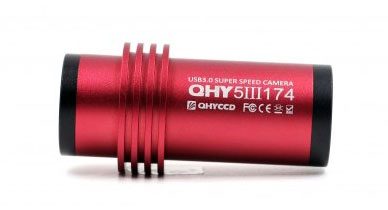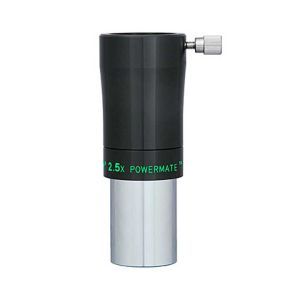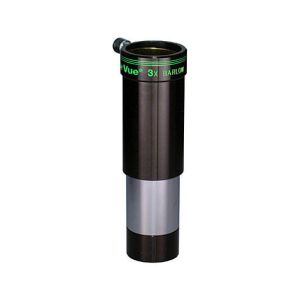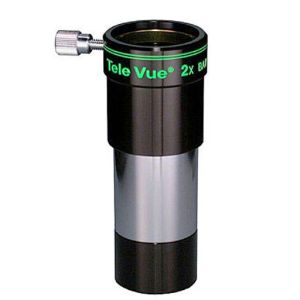
QHY
The ALccd-QHY 5III 174 is the first model of a series of new USB 3.0 cameras. It is an excellent camera for the solar, lunar, planetary and meteor photography, but also a low-noise and highly sensitive camera for deep sky photography.
Διαθέσιμο, συνήθως σε 5-14 μέρες

CAMERA ALCCD QHY 5III - 174C COLOR
The ALccd-QHY 5III 174 is the first model of a series of new USB 3.0 cameras. It is an excellent camera for the solar, lunar, planetary and meteor photography, but also a low-noise and highly sensitive camera for deep sky photography.
With a standard C-mount lens 50mm f/1.4, you can reach stars of 8th to 9th magnitude live in a video stream at 30 frames per second (about 30 ms exposure time). This offers a new dimension in high-sensitivity HD video photography!
Sensor and shutter
In the ALccd-QHY 5III 174 color, the built sensor uses technology in the "global shutter" mode (Pregius TM) combines high frame rates with high quality, CCD-like image results. Other highlights include lower noise level, higher quantum efficiencies and ways to set higher gain values to.
The global shutter prevents smearing / pixelizing of moving objects, for example, also artifacts caused by atmospheric movements at higher frame rates at the moon/sun/planetary photography.
The housing
The housing shape is designed so that the camera, like the proven ALccd-QHY 5-II models, fits into standard 1.25" focusers or adapters. The fins provide for a fast and selective dissipation of the heat which is produced during the exposure.
The back focus is minimal, so that the camera can also be used in most off-axis guiders for auto guiding. The Lemo connector on RJ12 is robust and compatible to most mount controllers on the market.
The ALccd-QHY 5III 174 camera is also available as monochrome version.
System requirements
The camera has an advanced electronics that makes a PC with USB 2.0 support necessary. The maximum performance can be reached only with a powerful USB 3.0 computer.
The operating software is Windows 7, 8 and 10 compatible and supported by 32- and 64-bit.
We recommend the ASCOM compatible software packages MSB AstroArt, PHD or MaxIm DL for the Autoguiding. For shooting the freeware SharpCap (link on CD supplied).

| Type : | Sony IMX174 Exmor CMOS color chip |
| Active pixels : | 1,936 * 1,216 (2.35 megapixels) |
| Pixel size : | 5.86 microns x 5.86 microns (square pixels) |
| Chip size : | 11.34 x 7.13 mm |
| Quantum efficiency : | a bit less than 78% |
| Fullwell : | >32 ke- |
| Die : | With microlenses |
| Readout type : | Progressive scan |
| Shutter type : | Global |
| Binning : | 1x1 and 2x2 |
| Data depth integration : | 10 bit / 12 bit |
| Data depth output : | 8 bit / 12 bit |
| Readout noise : | 5.3e @ Gain0, 2.8E @ Gain60, 1.6e@Gain100 |
| System gain : | 0.46e-/ADU@Gain0 |
| Data transmission : | 138 to 490 frames / second |
| Interface : | USB 3.0 (backwards compatible with USB 2.0) |
| Exposure times : | 5 microseconds - 900 s |
| Anti-amp control : | yes |
| Cooling : | No cooling |
| Powered : | Via USB cable |
| Autoguider port : | Integrated (LEMO to RJ-12) |
| Telescope connection : | 31.7mm (1 1/4 ") male terminal |
| Distance leading edge to the sensor : | 11 mm |
| Optical window : | With UV and IR blocking from 680 nm |
| Dimensions (DxH) : | 31.7x42x65 mm |
| Weight : | 85 g |



